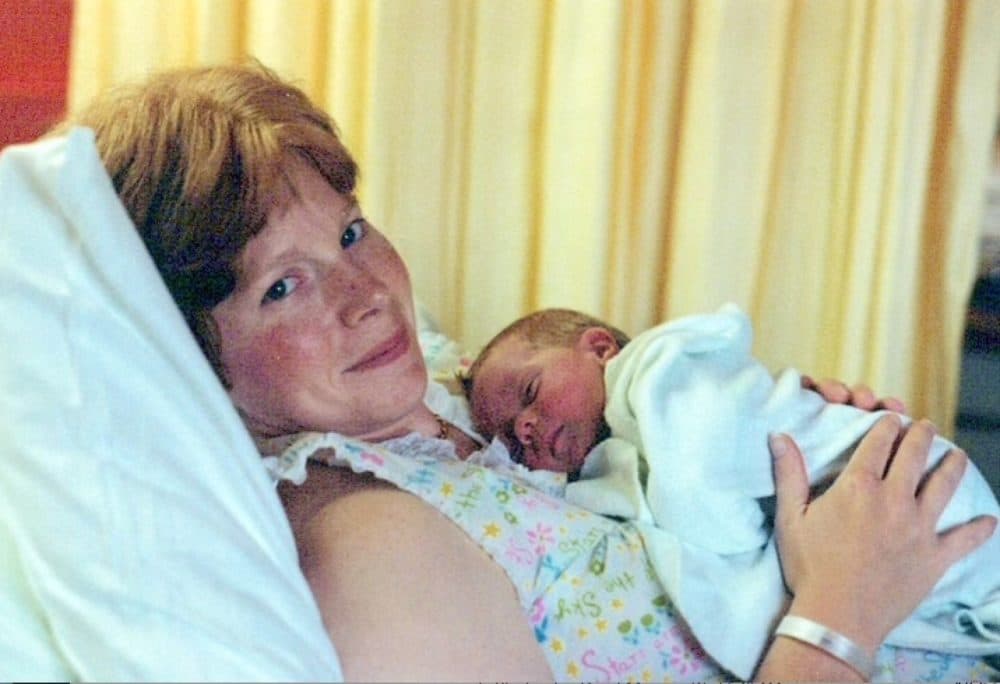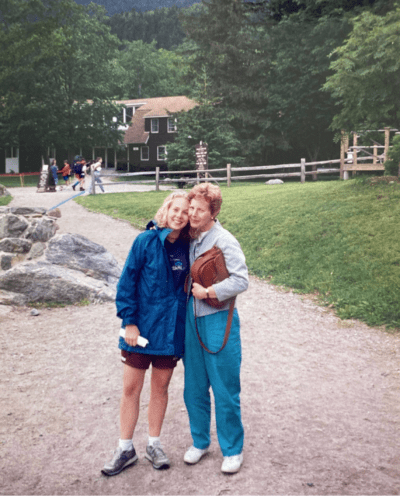Advertisement
Commentary
I wish my mom could tell me the story of her death

“Is mom going to die?” my sister asked over the phone. “I think so,” I replied.
I was standing in my bathroom, toothbrush in hand. It was an ordinary morning in February 2021. My kids were downstairs getting ready for school. The sun was out. And though my world was wobbling, I moved with strange stillness after receiving a call from the police in my mother’s town, 25 minutes down the road. Neighbors had found my mom at the bottom of her back steps, unresponsive but with vital signs. She was in an ambulance, on her way to the hospital.
I’m not a prayerful person but driving to my mom’s home — while I awaited contact from her medical team — I sent up a request: “Please, God. If this is her time, take her.” I did not want her to suffer. She was petrified of needing to be hospitalized during the pandemic and not being permitted to have visitors. Yet there she was, on her own. Hospital restrictions prevented me from accompanying her.
At her house, I walked into a life interrupted. Dinner on the stove. Wine on the counter. The air still smelled like her. Though my gut told me she would not return to the meal she had prepared, I nevertheless packed food into containers and busied myself at her kitchen sink, moving my hands to still my mind.
A voyeur, I inspected her mail and opened her pill organizer before stripping the sheets off her bed. The quiet of her house made me tiptoe, even as there was no one to disturb.
A year has passed since my mom died. Instead of being haunted by the details of her death, I am merely curious.
“Your mother has sustained a catastrophic brain injury,” the neurosurgeon explained over the phone. “She has three massive bleeds, including one in the brainstem.”
I asked the doctor, “If this were your mother, would you consider the injury a terminal one?”
His reply came swiftly, “Yes.”
Effectively, my mother was brain dead. The “blessing” of her injury was that she could not feel pain.
Over the phone, my sister and I decided to move immediately to palliative measures. COVID regulations meant I would be my mother’s sole hospital visitor, and we would have just one final hour together.
As I peered into the ICU, I saw a woman propped up in bed under heavy white blankets. She wore a cervical collar. Her closed, blackened eyes and matted hair made me think for a moment there had been a mistake. Only her familiar hands told me I was with the person who’d raised me. I struggled to act lovingly and gracious when I felt both repelled by, and in disbelief of, her injuries.
Advertisement

Cautioning my sister and our husbands about how my mother looked, I held a tablet close to her broken face. Through a computer screen, their heartfelt goodbyes were too distanced, and too short.
After we hung up, I was alone with my mother’s body, her heart beating inside her chest, even though medically speaking, she was already gone. We had not touched in 11 months because of the pandemic. When I took her hand, she gripped back. Just a reflex, the doctor told me, not a sign of life. Still, I sometimes regret not asking my mother if she could hear me.
Our allotted minutes together passed quickly, with machines beeping in the background. Because of COVID protocol, I wasn’t allowed in the room when clinicians removed the breathing tube. I hugged my mother, then left her in the hospital to die. Nurses assured me she would not be alone. But I was. At home, away from her.
The body holds only what it can. For months, because I was not ready to accept that she was dead, I perseverated on the final lonely moments of her life.
I pictured her feet resting on the bottom step as her crumpled body lay on the frozen ground. Did she fall at night after dinner, because of too much wine, or was it in the wintery morning hours? How long was she conscious and in pain? Could she see the icy stars as she looked up at the sky? Was she terrified of the trouble she was in?
A year has passed since my mom died. Instead of being haunted by the details of her death, I am merely curious. My mom was my go-to person for remembering. If I couldn't quite piece together a memory I'd call her, and she'd share her version of the same event. I sure could have used her this year. Countless times over the past several months, I've longed to ask my mom to tell me the story of her death.
